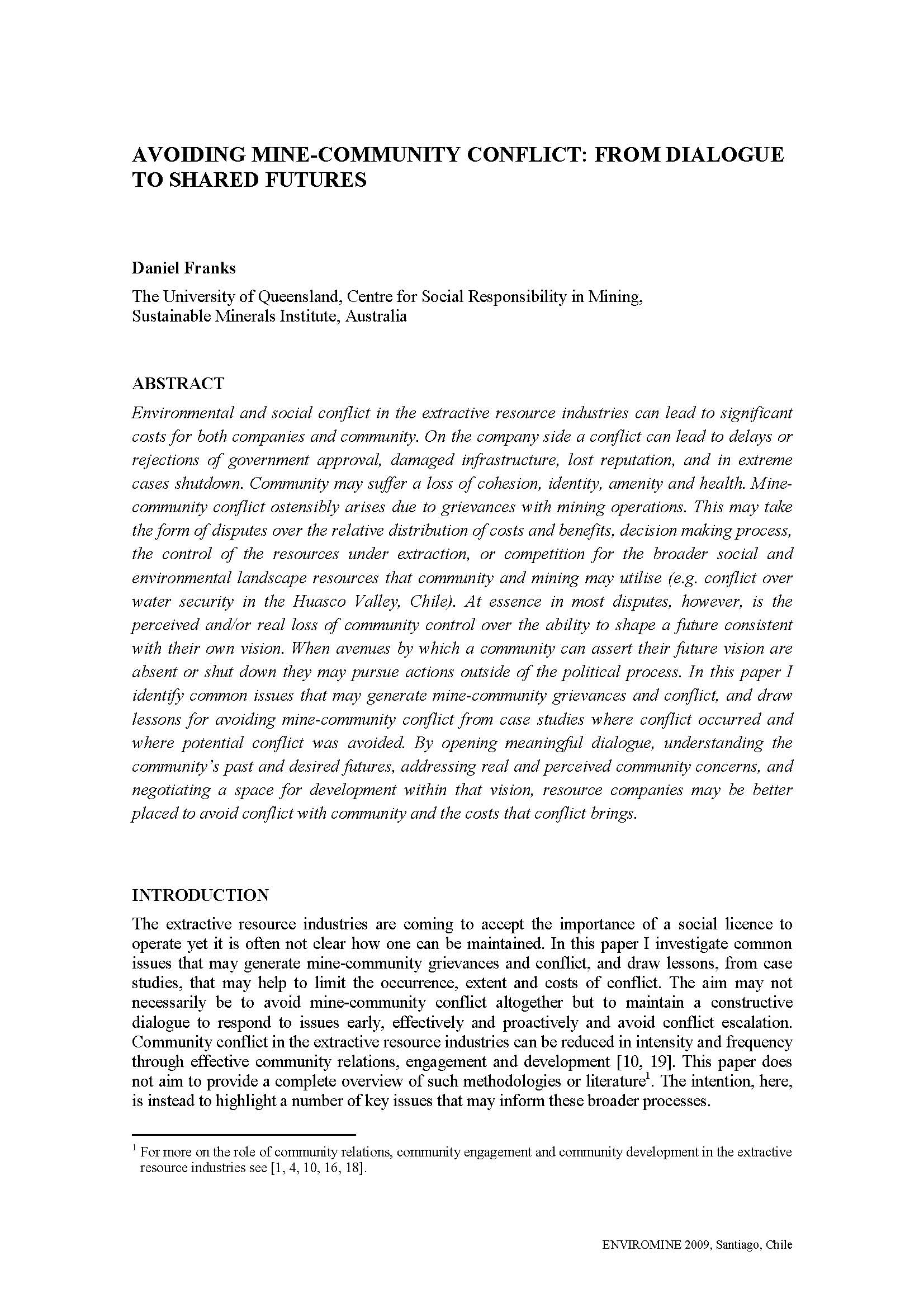Avoiding mine-community conflict: from dialogue to shared futures
Environmental and social conflict in the extractive resource industries can lead to significant costs for both companies and community. On the company side a conflict can lead to delays or rejections of government approval, damaged infrastructure, lost reputation, and in extreme cases shutdown. Community may suffer a loss of cohesion, identity, amenity and health. Mine-community conflict ostensibly arises due to grievances with mining operations. This may take the form of disputes over the relative distribution of costs and benefits, decision making process, the control of the resources under extraction, or competition for the broader social and environmental landscape resources that community and mining may utilise (e.g. conflict over water security in the Huasco Valley, Chile). At essence in most disputes, however, is the perceived and/or real loss of community control over the ability to shape a future consistent with their own vision. When avenues by which a community can assert their future vision are absent or shut down they may pursue actions outside of the political process. In this paper I identify common issues that may generate mine-community grievances and conflict, and draw lessons for avoiding mine-community conflict from case studies where conflict occurred and where potential conflict was avoided. By opening meaningful dialogue, understanding the community's past and desired futures, addressing real and perceived community concerns, and negotiating a space for development within that vision, resource companies may be better placed to avoid conflict with community and the costs that conflict brings.
Publisher: ENVIROMINE 2009, Santiago, Chile
Region: Global
Type: Conference Paper
CITATION
Franks, D. 2009. Avoiding Mine-Community Conflict: From Dialogue to Shared Futures. ENVIROMINE 2009, Santiago, Chile

